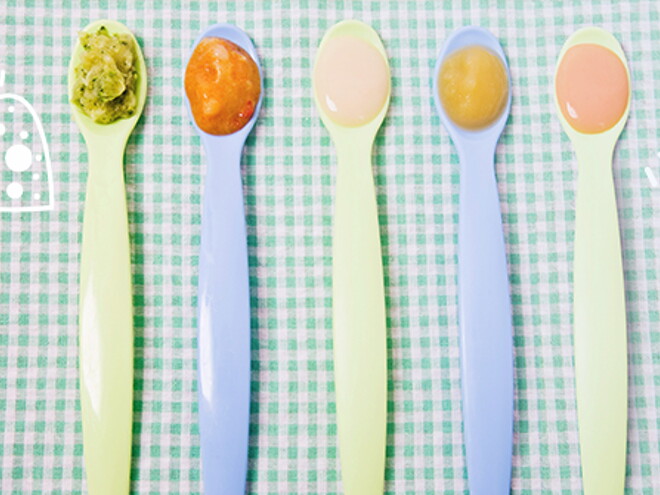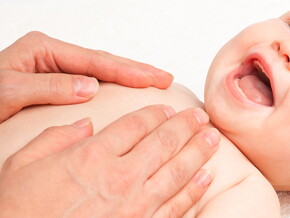
Your baby is growing faster during the first year than at any other time of her life. On average, her birth weight will triple and she will grow about 25cm (10in) in length by the time she turns one. By her second birthday her brain will have tripled in size. This is why making sure your baby is getting enough protein in her diet is so important. As she begins to try solid foods, there are several other key nutrients to keep in mind to promote her growth and development. Offer your little one a variety of foods from all the food groups to ensure that she gets enough of the following necessary nutrients:
- iron
- zinc
- calcium
- vitamin D
- vitamin A
Three vital minerals
Breast milk is naturally low in iron, which is essential for the proper development of your baby’s brain. By six months the iron stores your baby was born with are running low, so it’s important to offer her foods rich in iron. Iron also helps her blood carry oxygen around her body to where it’s needed. Research has shown that many six to eight-month-old babies do not meet the recommended intake of iron. Not getting enough iron can result in anemia, which causes fatigue and weakness. Worldwide, approximately 43% of children aged six months to five years have anemia—that’s the equivalent of 273 million children!
Your baby needs zinc for healthy growth. It plays an important role in keeping her immune system strong and helping her fight off infections. Zinc is also essential in cell growth and repair, so it’s a key mineral for your growing baby.
Calcium is also vital for building your little one’s bones, as well as her teeth. It helps her nervous system and muscles work properly. Getting enough calcium can be challenging for some babies at this age so ensure sufficient milk intake and offering your little one foods that are high in calcium.
[subhead]
Two important vitamins
Our bodies produce vitamin D when our skin is exposed to sunshine. Vitamin D is essential for bone, tooth, and muscle growth. Since young babies need to be kept out of the sun, or wear sunscreen at an appropriate age, they are not able to make vitamin D and need to get it from another source. The American Academy of Pediatrics recommends that breastfed babies receive a vitamin D supplement until they are able to drink cow’s milk, which is after one year of age. Not getting enough vitamin D can lead to rickets—a softening of bones that can occur as children grow.
Vitamin A promotes healthy growth and vision. The World Health Organization recommends a vitamin A supplement for babies and children aged six months to five years in areas of the world where vitamin A deficiency is high. If you are unsure, ask your healthcare provider if you are in an area where low vitamin A levels are common.
Sources
http://kidshealth.org/en/parents/childs-growth.html?WT.ac=p-ra#catgrowth (Accessed December 18, 2017)
https://www.healthychildren.org/English/healthy-living/nutrition/Pages/Vitamin-D-Deficiency-and-Rickets.aspx (Accessed December 18, 2017)
https://www.healthychildren.org/English/ages-stages/gradeschool/nutrition/Pages/Vitamin-Supplements-and-Children.aspx (Accessed December 18, 2017)
https://www.healthychildren.org/English/ages-stages/baby/feeding-nutrition/Pages/Vitamin-Iron-Supplements.aspx (Accessed December 18, 2017)
http://www.who.int/elena/titles/vitamina_children/en/ (Accessed December 18, 2017)
Finn K, Callen C, Bhatia J et al. Importance of dietary sources of iron in infants and toddlers: lessons from FITS study. Nutrients 2017; 9(7): doi: 10.3390/nu9070733.
World Health Organization. The global prevalence of anaemia in 2011. Geneva, World Health Organization, 2015.


















